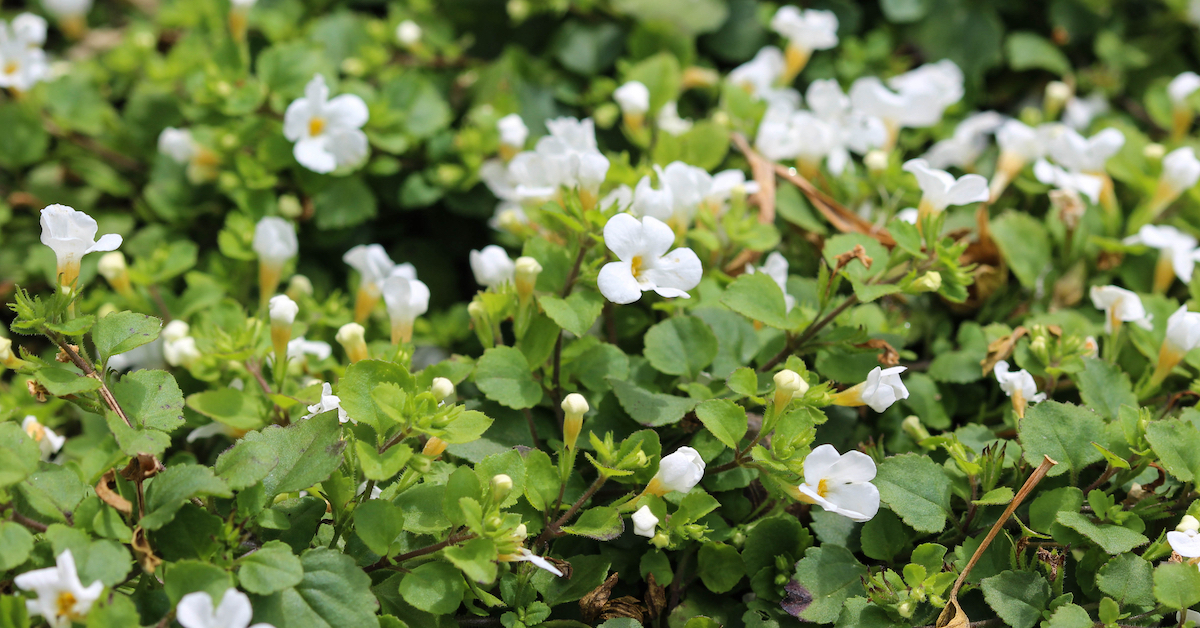Throughout human history, people have been searching for ways to improve thinking skills and boost memory.
Nowadays, many of us turn to a strong cup of coffee or tea in the morning to sharpen our wits for the mental challenges of the day.
But, according to historians, when people living in ancient India wanted help for their intellectual tasks– which included memorizing lengthy sacred hymns and scriptures– they favored one traditional Ayurvedic herb.
Now, modern day science shows this herb really works.
The herb is named Brahmi, after one of the Hindu gods. Brahmi, whose modern scientific name is Bacopa monnieri, has had a long, distinguished history in Ayurvedic medicine, the traditional medicine of India. Its name in Sanskrit translates as “brain tonic.”1 Ayurvedic healers have used the herb to treat inflammation, epilepsy, asthma, and fever as well as memory problems.
Researchers today have been examining and analyzing the large number of natural chemicals in Bacopa to better understand which of them display the greatest potential for boosting brain health and possibly supporting the intellectual capacity of aging brains.
What they’re discovering holds great promise. And they’ve been particularly interested in a group of unique compounds in this herb that have been dubbed “bacosides”.
Herbal Brain Protection
Repeatedly, lab tests have demonstrated that bacosides are potent antioxidants that can help the brain prevent the daily wear and tear that may gradually reduce the ability of neurons to function properly and lead to memory loss.
For one thing, bacosides can cross the blood-brain barrier.2 This barrier, which keeps many toxic substances from entering brain tissue, also keeps some potentially beneficial nutrients and drugs from traveling into the brain. But a review study in Asia shows that once bacosides get through the barrier and into the brain, they fend off oxidative damage to brain cells in several different impressive ways.
For one thing, these natural chemicals stimulate the brain’s own antioxidant defenses. Added to that, say researchers, the bacosides circulate among the neurons so that their scavenging activity eliminates free radicals and helps “detox” the brain.
As part of their review, the Asian teams analyzed studies that examined the ability of Bacopa to help support better brain function in people whose cognitive abilities are considered normal.
They found that in a three-month study in Australia, Bacopa helped improve the mental performance of more than 100 people aged 18 to 60 who had normal cognitive abilities. These folks expanded their verbal skills, had better attention spans, and could remember information with less trouble than people in the study who did not take Bacopa.
And in another study in Australia, this one involving people over the age of 40 but also lasting three months, found that Bacopa helped people retain newly learned information and reduced their problems with forgetfulness.3
Besides that, lab tests in India demonstrated that the bacosides in Bacopa can help to boost the survival of neurons in the hippocampus – one of the brain’s critical memory centers – and potentially prevent degenerative changes in neurons that often accompany Alzheimer’s disease.4
Brain Structural Changes that Help Learning
There’s also good evidence that the substances in Bacopa can help neurons form more efficient networks that facilitate learning and recall.
For example, a study that involved researchers from several different countries used CT scans to show that taking Bacopa supplements accelerates architectural changes in neuronal networks that streamline the adjustments neurons make to accommodate the learning process.5 Exactly how this process occurs is something the researchers are still trying to unravel.
Taking Bacopa
If you decide to take a Bacopa supplement, some experts believe that a whole plant extract is probably more effective than a leaf extract. And if you want to ensure that you’re getting a significant amount of bacosides, use an extract that is standardized.







